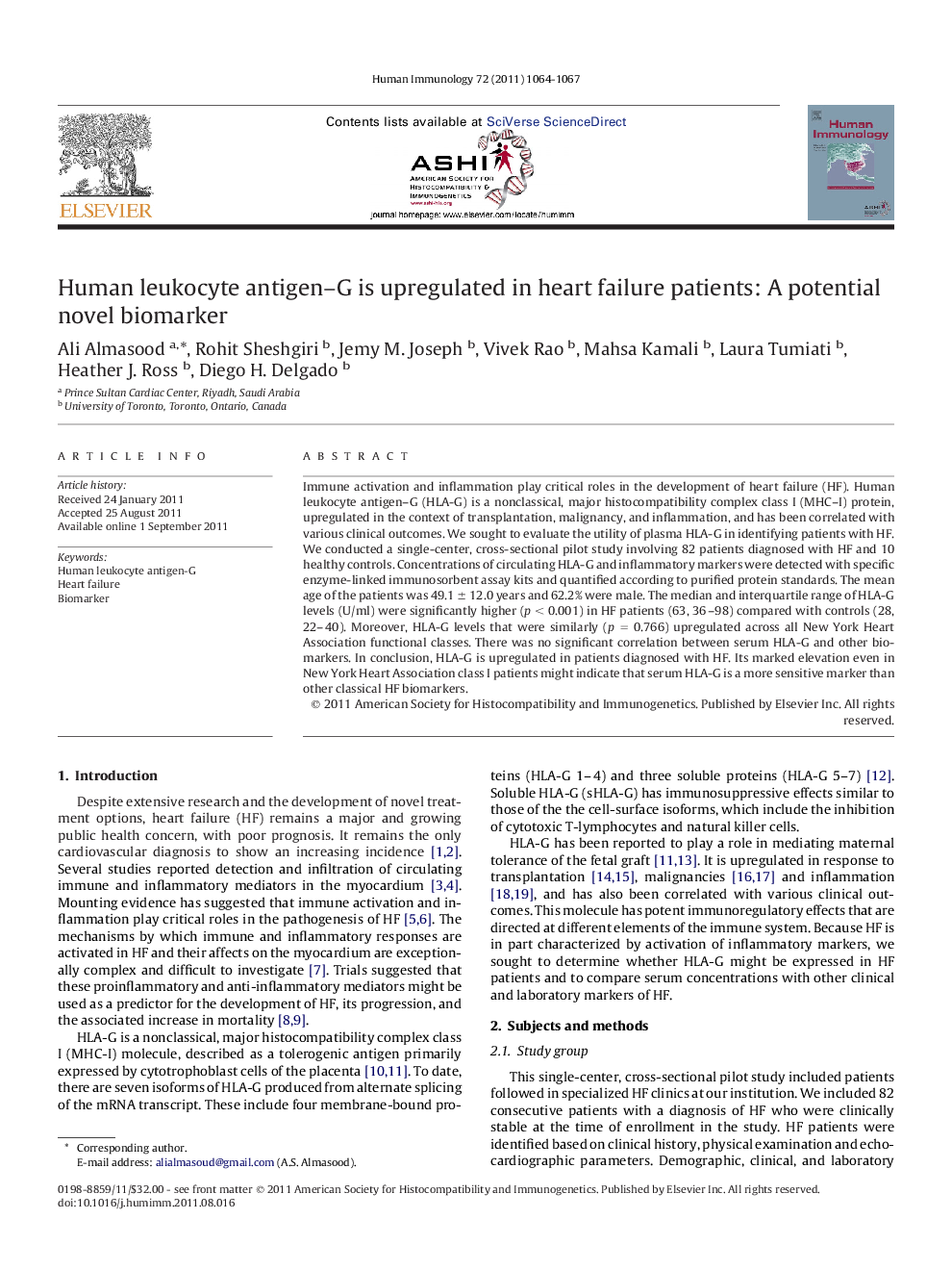| Article ID | Journal | Published Year | Pages | File Type |
|---|---|---|---|---|
| 3351316 | Human Immunology | 2011 | 4 Pages |
Abstract
Immune activation and inflammation play critical roles in the development of heart failure (HF). Human leukocyte antigen-G (HLA-G) is a nonclassical, major histocompatibility complex class I (MHC-I) protein, upregulated in the context of transplantation, malignancy, and inflammation, and has been correlated with various clinical outcomes. We sought to evaluate the utility of plasma HLA-G in identifying patients with HF. We conducted a single-center, cross-sectional pilot study involving 82 patients diagnosed with HF and 10 healthy controls. Concentrations of circulating HLA-G and inflammatory markers were detected with specific enzyme-linked immunosorbent assay kits and quantified according to purified protein standards. The mean age of the patients was 49.1 ± 12.0 years and 62.2% were male. The median and interquartile range of HLA-G levels (U/ml) were significantly higher (p < 0.001) in HF patients (63, 36-98) compared with controls (28, 22-40). Moreover, HLA-G levels that were similarly (p = 0.766) upregulated across all New York Heart Association functional classes. There was no significant correlation between serum HLA-G and other biomarkers. In conclusion, HLA-G is upregulated in patients diagnosed with HF. Its marked elevation even in New York Heart Association class I patients might indicate that serum HLA-G is a more sensitive marker than other classical HF biomarkers.
Related Topics
Life Sciences
Immunology and Microbiology
Immunology
Authors
Ali Almasood, Rohit Sheshgiri, Jemy M. Joseph, Vivek Rao, Mahsa Kamali, Laura Tumiati, Heather J. Ross, Diego H. Delgado,
